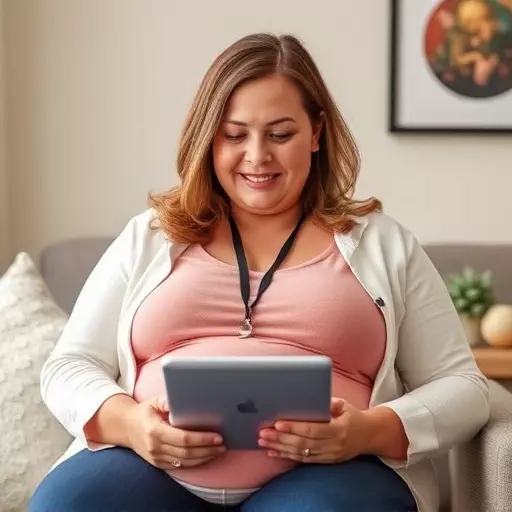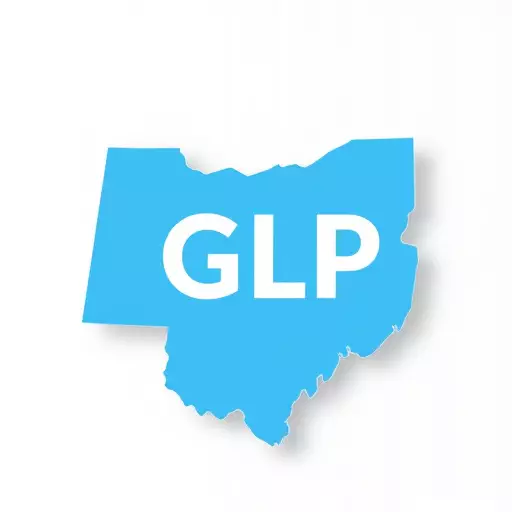GLP-1 telemedicine renewal programs in Akron are revolutionizing obesity management by combining GLP-1 therapies with virtual coaching through accessible telehealth obesity treatment platforms. These innovative solutions offer remote healthcare support for weight loss and diabetes prevention, catering to patients' homes and addressing mobility issues or remote locations. By promoting satiety, reducing appetite, improving insulin sensitivity, and enhancing blood sugar control, these programs foster long-term success in weight management through personalized dietary advice and digital progress monitoring. While facing challenges like communication barriers and technological limitations, continuous innovations aim to improve patient experiences and outcomes for GLP-1 in Akron and virtual obesity care platforms.
In the pursuit of effective obesity management, GLP-1 telemedicine renewal programs are emerging as a promising solution. This article explores the integration of GLP-1 (glucagon-like peptide-1) therapy with telehealth for weight loss. We delve into the role of GLP-1 in treating obesity and its synergy with virtual care platforms. Furthermore, we analyze the benefits and challenges of these virtual obesity care platforms and provide insights on designing successful telehealth obesity treatment programs in Akron and beyond.
- Understanding GLP-1 and its Role in Obesity Treatment
- The Rise of Telehealth for Obesity Management
- Benefits and Challenges of Virtual Obesity Care Platforms
- Designing Effective GLP-1 Telemedicine Renewal Programs
Understanding GLP-1 and its Role in Obesity Treatment

GLP-1, or glucagon-like peptide-1, is a hormone produced by specialized cells in the intestine in response to food intake. It plays a crucial role in regulating blood sugar levels by stimulating insulin secretion and inhibiting glucagon release. In the context of obesity treatment, GLP-1 has emerged as a powerful ally due to its unique properties. By mimicking the effects of natural GLP-1, telemedicine renewal programs utilizing GLP-1 can significantly aid in weight management. These programs often incorporate virtual obesity care platforms, offering remote access to healthcare professionals and personalized guidance for patients in Akron and beyond.
The role of GLP-1 in obesity treatment is multifaceted. It promotes feelings of satiety, leading to reduced calorie intake and appetite suppression. Moreover, GLP-1 enhances insulin sensitivity, facilitating better blood sugar control, which is particularly beneficial for individuals with type 2 diabetes often associated with obesity. With the rise of telehealth and virtual obesity care platforms, patients can now access these innovative GLP-1 telemedicine renewal programs from the comfort of their homes, revolutionizing how we approach obesity treatment in the digital age.
The Rise of Telehealth for Obesity Management

In recent years, the healthcare industry has witnessed a significant shift towards telehealth and virtual care models, particularly in response to global health challenges. This trend is no more evident than in the realm of obesity management, where the rise of telemedicine offers innovative solutions for effective weight loss and diabetes prevention. With GLP-1 (Glucagon-like peptide-1) as a key player in this space, Akron residents now have access to advanced treatments through telemedicine renewal programs. These virtual obesity care platforms provide a convenient and accessible approach to healthcare, allowing patients to connect with specialists from the comfort of their homes.
Telehealth obesity treatment programs have revolutionized how care is delivered, especially for those facing mobility challenges or living in remote areas. Through secure video conferencing, patients can consult endocrinologists, dietitians, and psychologists who offer personalized guidance tailored to their unique needs. By combining GLP-1 therapies with virtual coaching, these programs create a holistic environment that supports long-term success in weight management and improved overall health for folks in Akron and beyond.
Benefits and Challenges of Virtual Obesity Care Platforms

The rise of GLP-1 telemedicine renewal programs has brought significant benefits to the management of obesity, offering accessible and convenient telehealth obesity treatment programs. Virtual platforms provide a unique opportunity for individuals in Akron and beyond to access specialized care from the comfort of their homes. Through these platforms, patients can consult with healthcare professionals, receive personalized dietary advice, and monitor their progress using digital tools, all while maintaining a discrete and non-intrusive approach. This is particularly advantageous for those who may face barriers to traditional in-person care, such as limited mobility or busy schedules.
However, challenges exist when it comes to virtual obesity care platforms. Ensuring effective communication and building trust between patients and healthcare providers can be more difficult in a virtual setting. Additionally, the digital nature of these programs might not cater to everyone’s preferences or technological capabilities. Privacy and security concerns also loom large, as sensitive health data needs to be protected during transmission. Despite these challenges, continuous innovations in telehealth technology aim to improve patient experience and outcomes, making GLP-1 in Akron and similar initiatives more successful over time.
Designing Effective GLP-1 Telemedicine Renewal Programs

Designing effective GLP-1 telemedicine renewal programs requires a multifaceted approach tailored to the unique needs of patients and healthcare providers in Akron. These programs, focusing on GLP-1 therapy for obesity treatment, should leverage virtual obesity care platforms to deliver personalized, accessible care. By integrating telemedicine into standard of care protocols, healthcare professionals can improve patient engagement and adherence to GLP-1 regimens.
Key considerations include ensuring secure and user-friendly telehealth interfaces, providing clear education on GLP-1 medications and their administration, offering regular virtual consultations for monitoring and adjustment, and fostering supportive communities where patients can share experiences and stay motivated. Customizing these programs to accommodate diverse patient populations and cultural contexts in Akron will enhance their effectiveness and accessibility.
